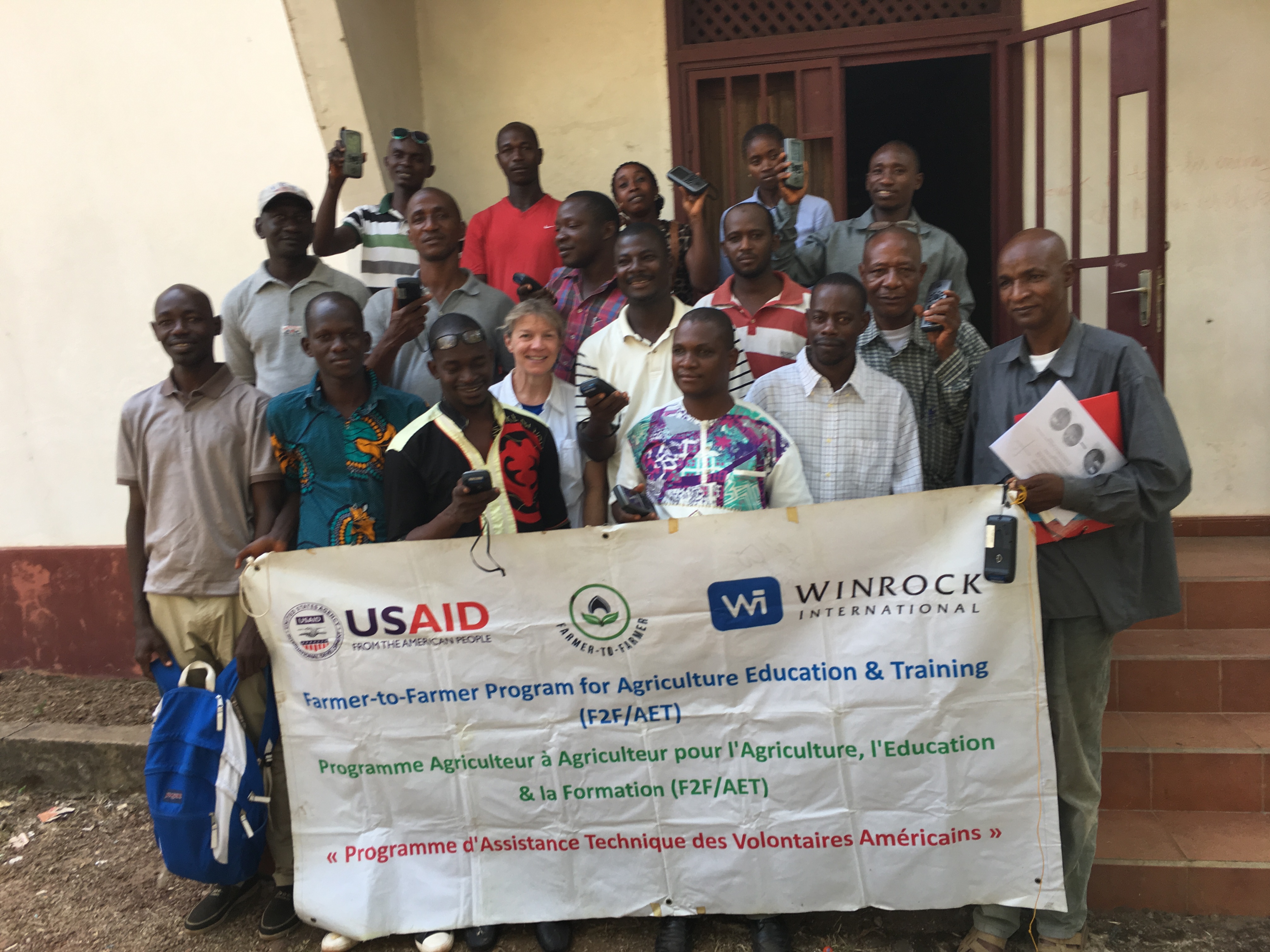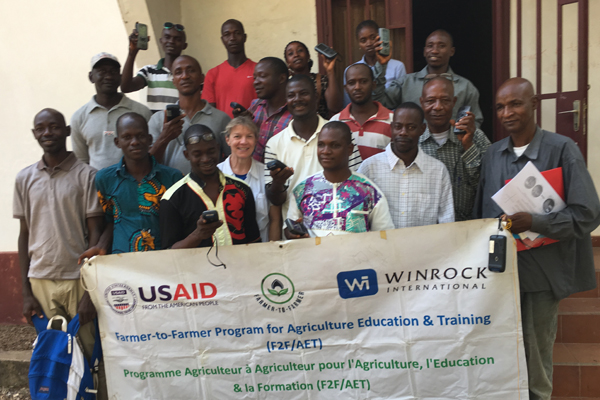
Volunteer Post
A Guinean Experience
Excerpts from a Volunteer Journal
Peg Gronemyer
In May of 2018, I was very fortunate to be selected by Winrock International to lead a GIS and GPS workshop in the Republic of Guinea in West Africa. Below are excerpts from my journal I kept during the two weeks I was in-country:
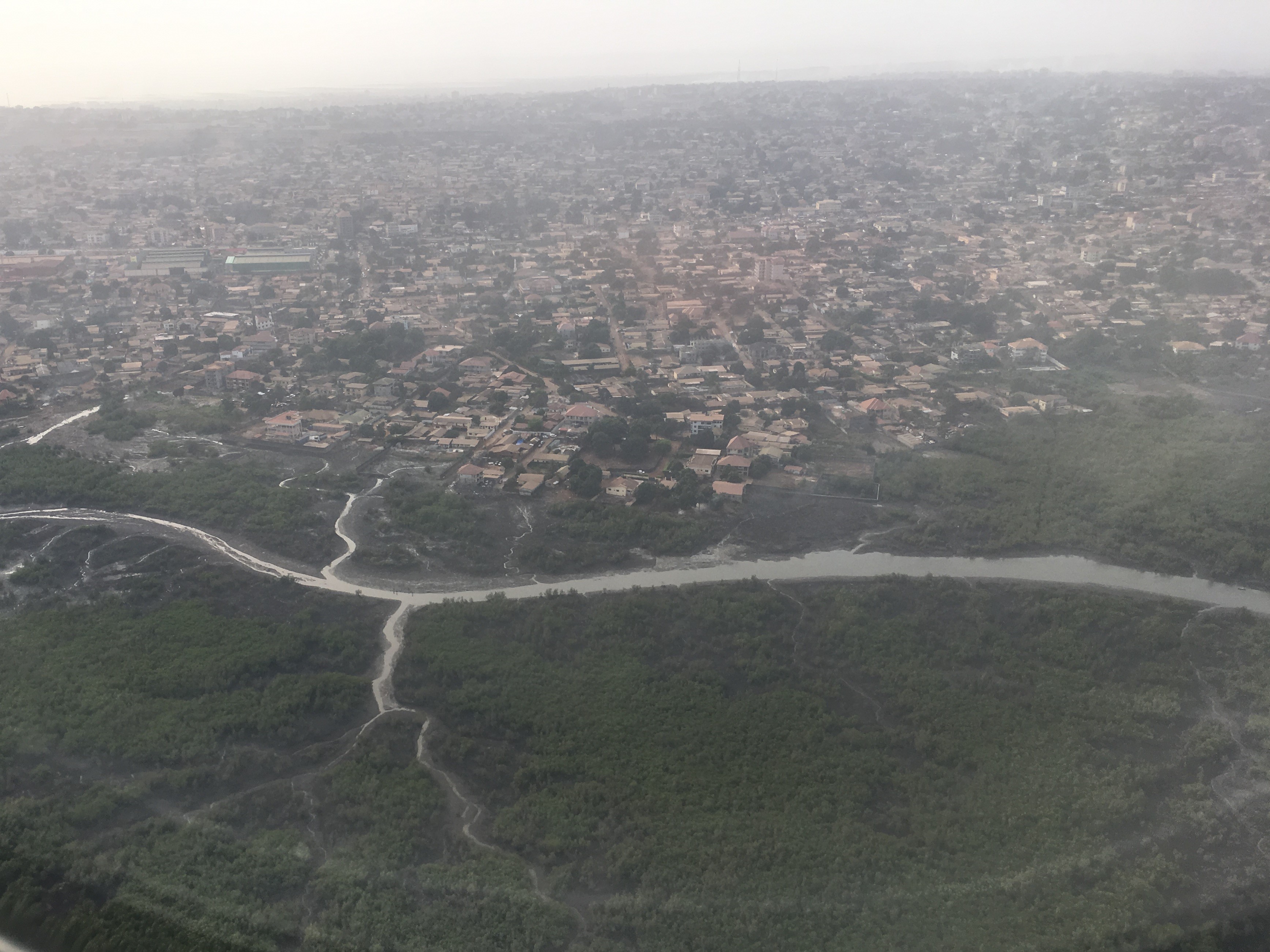
I flew into hot and steamy Conakry, the capital of Guinea, located on the Atlantic coast, and about 1000km (660miles) north of the equator. Almost 2 million people live in Conakry, which is located on a peninsula, and there are apparently only a couple main highways so the traffic is unbelievable. I only saw a few traffic lights – cars, motorcycles, and scooters navigate by constantly changing lanes, zipping in and out, cutting off other drivers, nearly continuously honking their horns. There seems to be no limit as to how many people a moving vehicle can carry. Cars and vans are packed full, usually with people standing on the back bumper or riding on top, casually holding on while they speed along, even at high speeds. I saw as many as 5 adults on a single motorcycle, and many times I saw two women and their children taking a single motorcycle taxi.
The first day I have orientation at the Winrock Headquarters. Everyone is very cordial and smiles kindly at my awkward, slow French (the national language). Winrock staff spend time with me so that I am comfortable with what to expect for accommodations and cultural norms. We had something like yogurt mixed with ground corn for lunch. Add sugar to taste – it was quite good – then we had out of this world fresh pineapple.
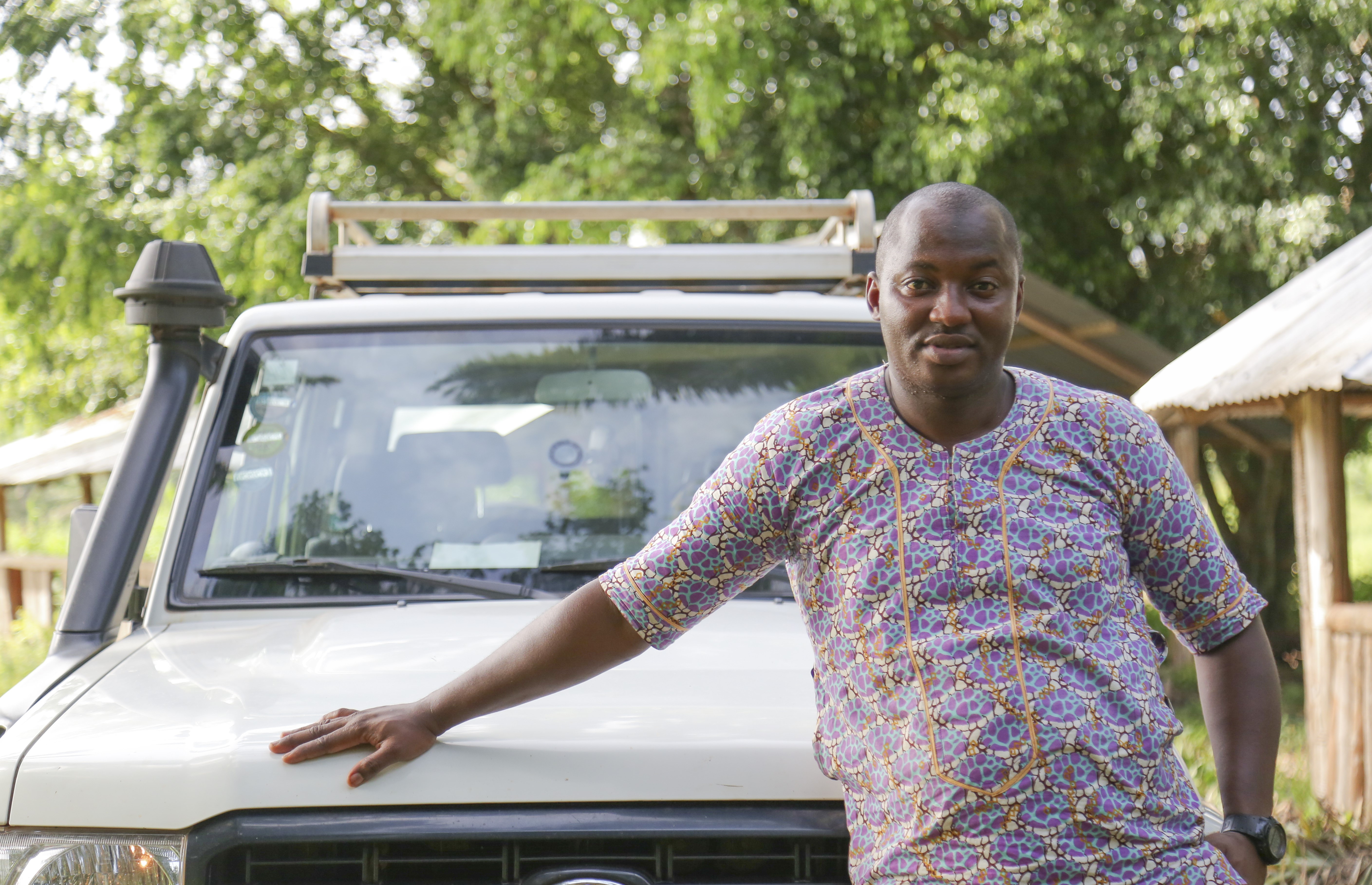
My assignment location is actually in the city of Mamou, about 250km inland from Conakry. Winrock has provided a driver, Baillo, and a second escort, Souleymane. Both are warm, wonderful people, who help me with my French and patiently answer my constant questions with smiles, and sometimes amusement. I am very lucky to be accompanied by two fun, fabulous people. (In retrospect, I cannot say enough about these two great guys. Back in the States, I do miss them and their warm smiles and easy laughter).
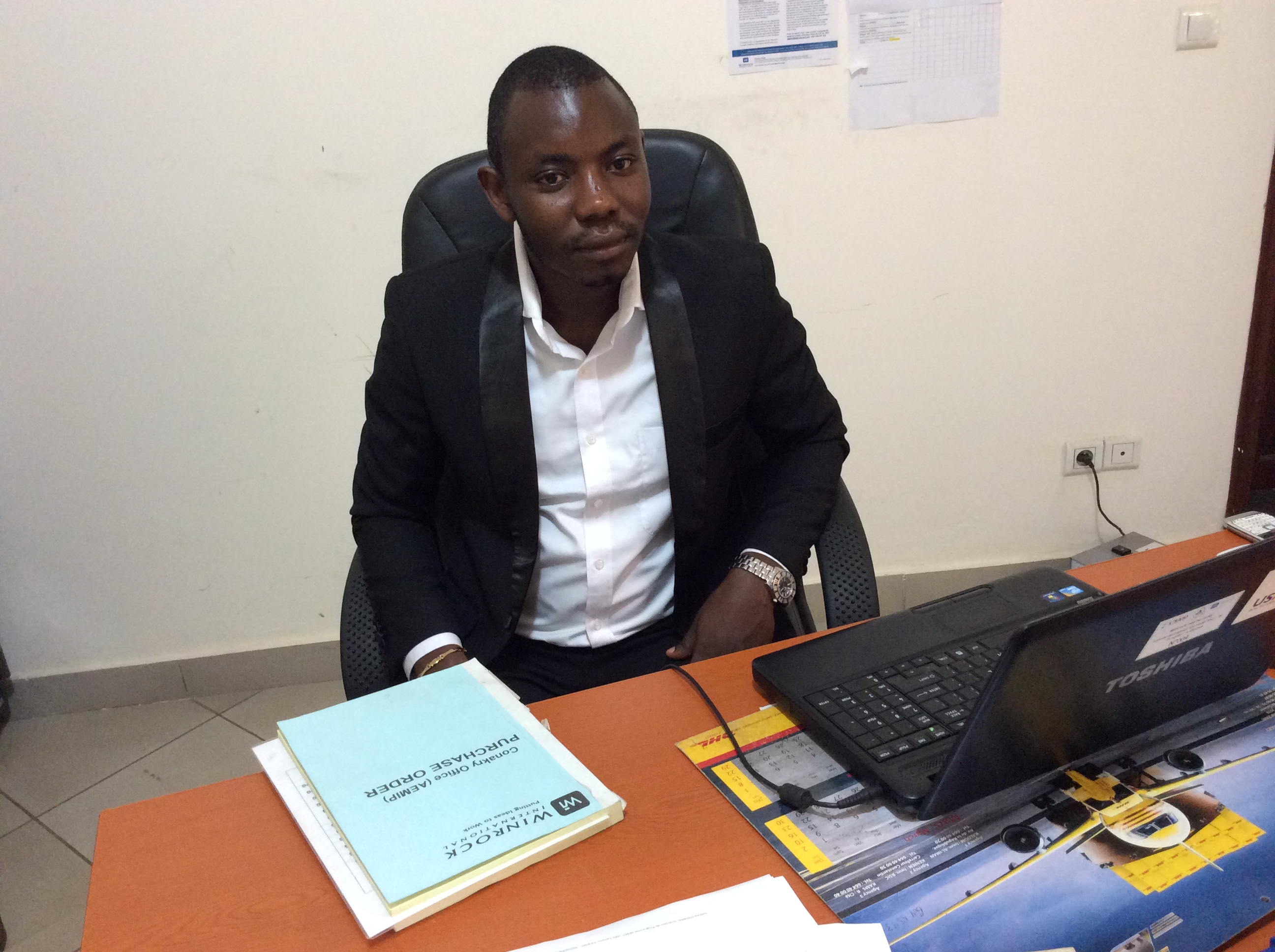
The only road to Mamou is a bit crowded with very slow moving, large trucks, and no real traffic rules or speed limits. So we had an exciting ride and I took pictures of the landscape. Parts of the drive showed me quite beautiful vistas, large trees (including huge mango trees), as we climbed in elevation. Other areas were clear-cut of all trees and showed nothing but tree stumps and very little vegetation. We also passed through villages and many dozens of people selling goods along the busy road. Sheep, goats, cattle, and chickens roam freely along the roadside and in the towns. Apparently, there are virtually no natural predators, and I think probably very little wildlife at all, in this part of Guinea.
The next day Baillo, Souley, and I head out to the forestry school, Ecole Nationale des Agents Techniques des Eaux et Forets (ENATEF). I met my highly skilled and experienced interpreter, Damba -who helped me in so many ways besides simply translating my English into French. Besides explaining Guinean culture and customs, Damba provided many useful suggestions throughout the workshop, as well as encouragement and always maintaining his sense of humor even after a long day in a hot classroom. He was wonderful.
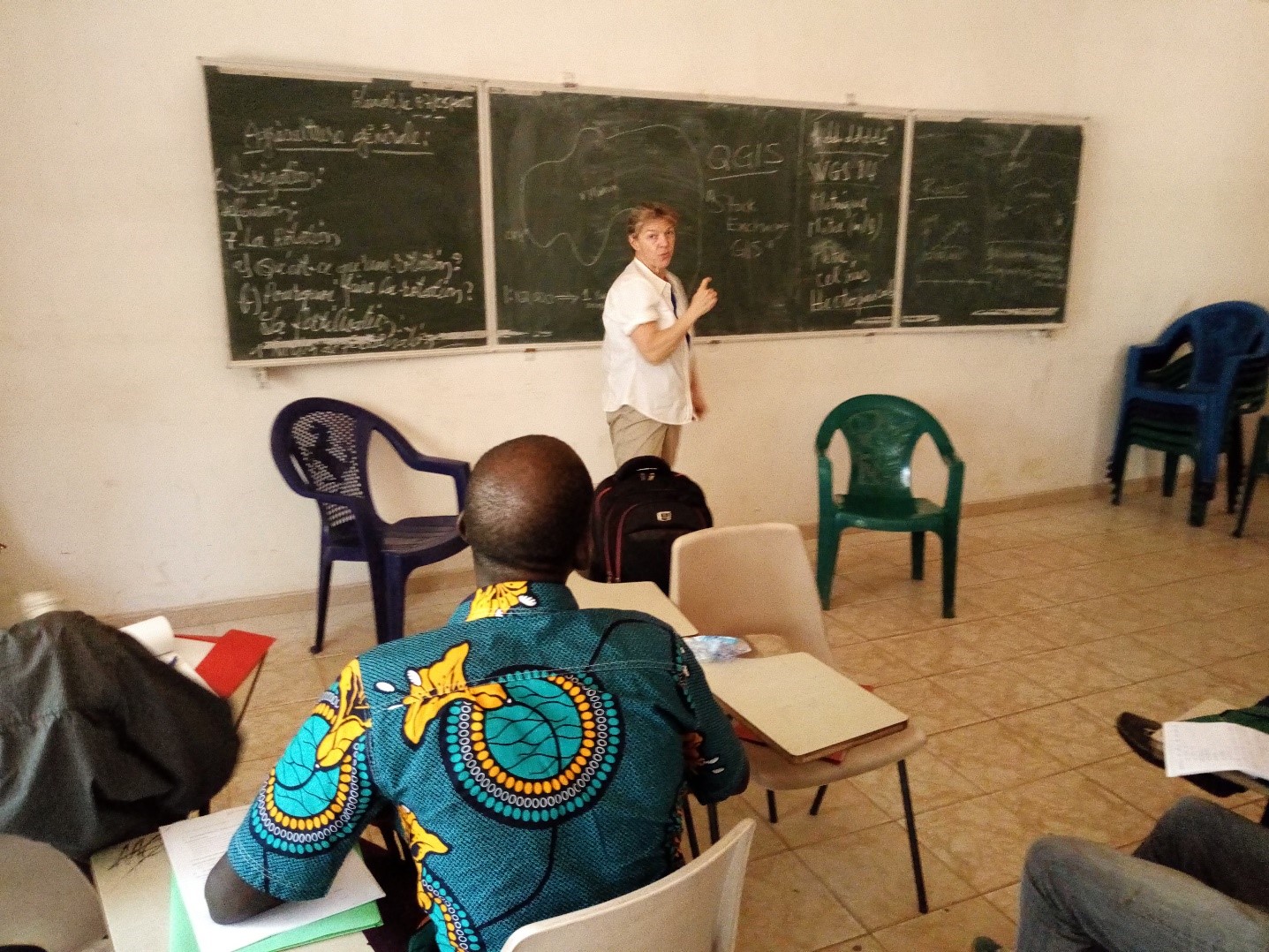
ENATEF has a small campus surrounded by large trees, many of which were flowering or heavy with guava or mangos. There are also many more birds than I had seen or heard anywhere else. One I think is a sunbird – a beautiful bright blue-green active individual drinking nectar from flowers, and another I later identified as a pied crow. There are several buildings with classrooms and offices, a nursery with native plants, and houses (where I assume some staff lives with their families).
There were almost 20 workshop participants – students, instructors, and technicians. The school wanted to train staff so that they, in turn, could train others and incorporate GIS and GPS into their classrooms. (I have now learned that this Training of Trainers, or TOT, is a common, very efficient and successful strategy used by Winrock).
This first day of training passed in a blur. Lots of time taken for introductions, speeches by the school and regional directors. I could immediately tell that the participants are very, very serious about learning. The participants set some ground rules, such as turning off cell phones – and people were teased good-naturedly the few times that a cell phone did go off. Eventually, we launched into the actual workshop. It was a bit chaotic because of the different languages, but we managed and had a few good laughs at the literal vs. figurative translations between English and French.
On the second day, the participants were given a GPS (lent by another organization) to use and they were like little kids with brand new toys – impatient and excited to get outside and start collecting GPS data. Finally, they were allowed to go outside and collect data, then came back to download and process.
The other days passed quickly. By the last day of the workshop, most of the students were no longer shy around me and there were lots of smiles and easy conversation. The regional director of schools and the director of ENATEF both gave speeches and then we all handed out certificates of completion. “Merci” was probably said 1000 times in just a few hours. Each student wanted a picture with both directors and me (I was really quite honored). The school wanted to give me a gift and requested that I choose something from a local vendor who would often sell his wares in the school parking lot. I returned to my hotel with two beautiful clothes made in Guinea, completely overwhelmed and touched by the kindness and generosity of my gift from the school.
Then the next day it is back to Conakry, to complete a final report. Also trying hard to find something uniquely “Guinean” for gifts, but at the markets, local products are almost entirely fruit (bananas, pineapple, mango, avocado), meat, or fresh-baked, delicious bread (my breakfast each day). Most of the manufactured items in the markets are made in China. Eventually, Souley triumphed and helped me locate a couple of gifts. (My young nephews went crazy when I gave them football outfits that say “Guinean football”). On Sunday I have to say goodbye to my new friends, Souley and Baillo, and then I fly back to the States.
This trip was a wonderful experience for me – besides learning a lot, it was so satisfying and fulfilling, and just a whole lot of fun. I always smile when I think of Souley and Baillo and the people at ENATEF. I hope I will have more opportunities like this, in the future.
